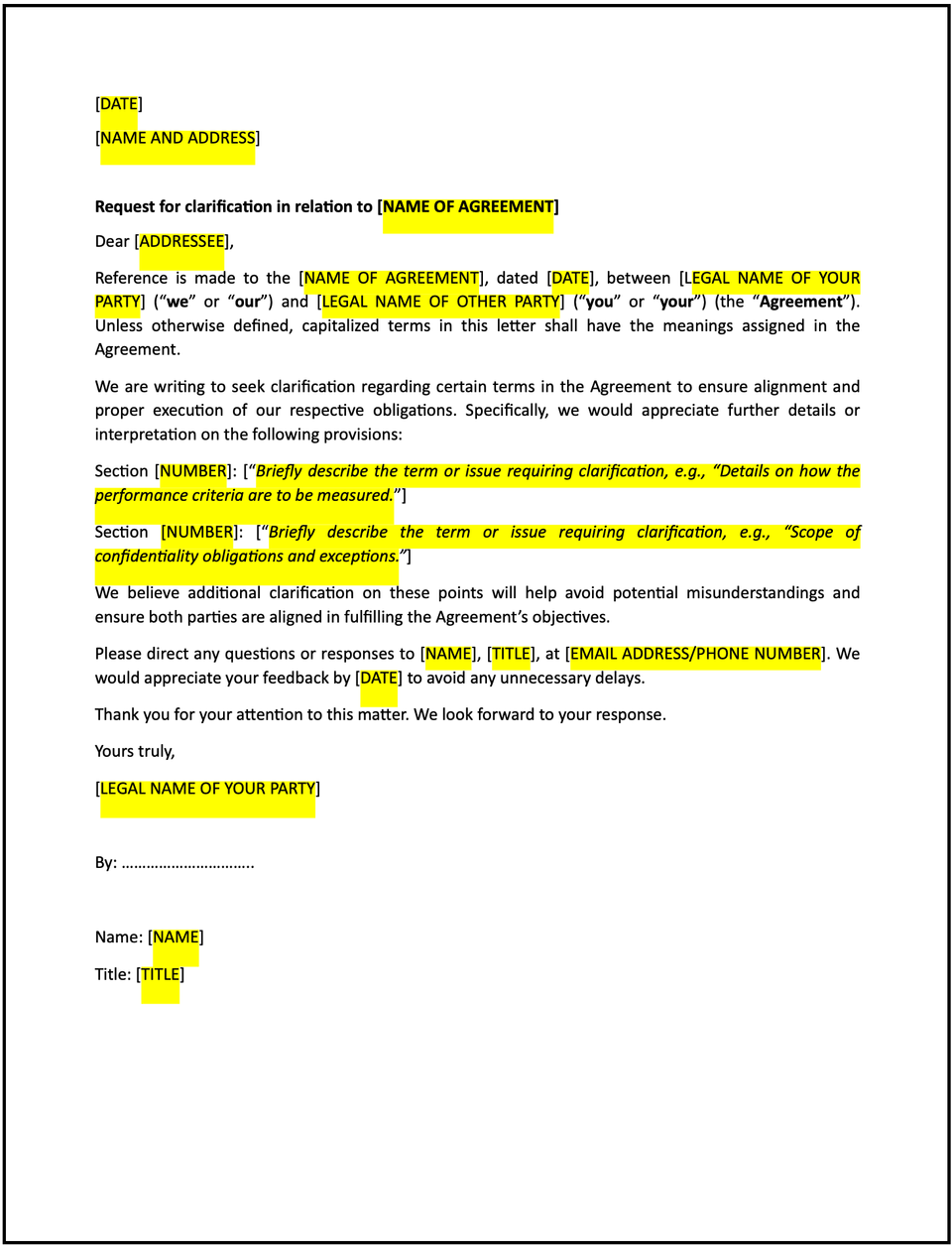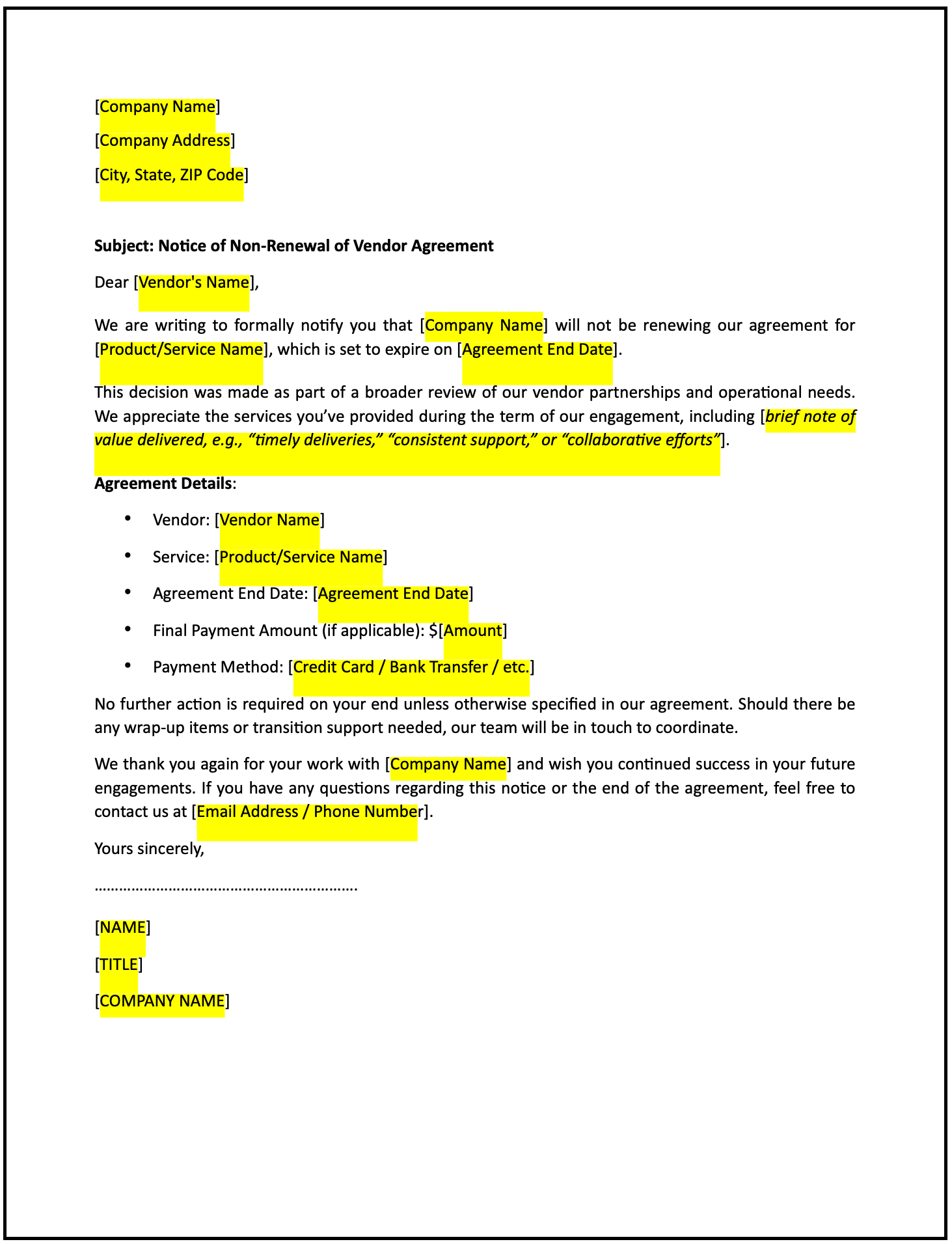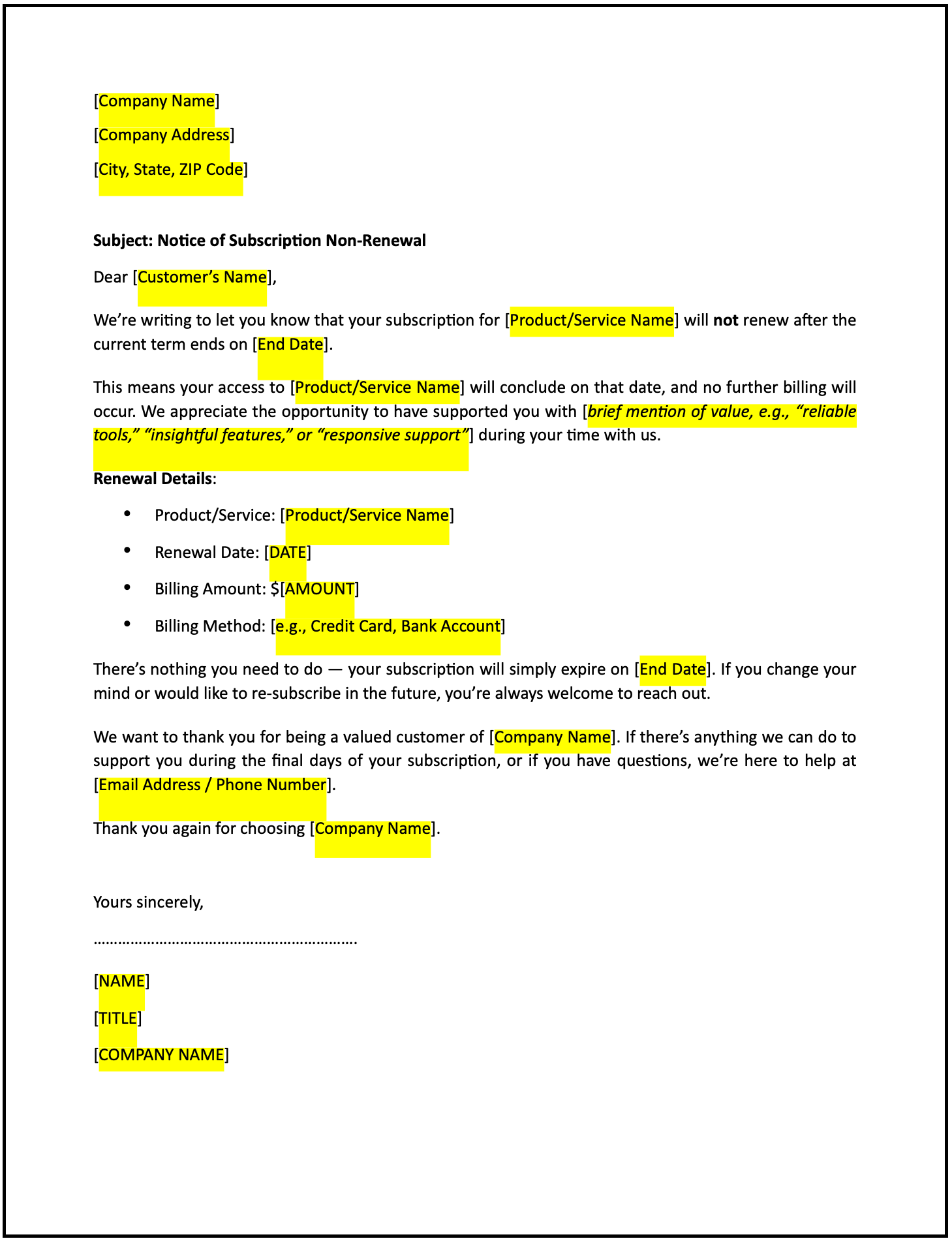Request for clarification of contract terms letter: Free template

Request for clarification of contract terms letter
Seeking clarification of contract terms is a crucial step to ensure all parties fully understand their obligations and rights. This letter provides a professional way to identify the areas requiring clarification, explain their importance, and request detailed responses to eliminate ambiguities.
How to use this request for clarification of contract terms letter
- Reference the contract: Clearly identify the contract, including its title, reference number, and the parties involved. Provide relevant dates or context for clarity.
- Specify the unclear terms: Clearly outline the specific clauses or sections that require clarification, referencing their titles or numbers for accuracy.
- Explain the rationale: Briefly explain why clarification is necessary, emphasizing the importance of understanding these terms for compliance or execution.
- Request detailed responses: Politely ask the other party to provide explanations or interpretations of the specified terms.
- Maintain a professional tone: Ensure the letter is respectful and solution-oriented, fostering collaboration and mutual understanding.
- Request acknowledgment: Ask the other party to confirm receipt of the letter and provide a timeline for their response.
Benefits of using a request for clarification of contract terms letter
This letter template provides a structured and professional way to address ambiguities in contract terms while fostering transparency and collaboration. Here’s how it helps:
- Eliminate ambiguities: Requesting clarification ensures all parties are aligned and reduces the risk of misunderstandings.
- Promote transparency: Proactively seeking clarification fosters trust and open communication.
- Minimize disputes: Addressing unclear terms early reduces the likelihood of conflicts later in the contract's lifecycle.
- Demonstrate professionalism: A respectful and clear request reflects your commitment to the agreement’s success.
- Provide documentation: The letter serves as a formal record of your request for clarification, which can be useful for future reference.
Tips for writing an effective request for clarification of contract terms letter
- Be specific: Clearly reference the contract and the terms requiring clarification, including relevant clause numbers or titles.
- Provide context: Explain why the clarification is needed and how it impacts the contract’s execution.
- Use professional language: Maintain a respectful tone, emphasizing the importance of mutual understanding.
- Suggest examples: If applicable, provide hypothetical examples or scenarios to guide the clarification process.
- Keep it concise: Focus on the key points and avoid unnecessary details or commentary.
Frequently asked questions (FAQs)
Q: What details should I include in this letter?
A: Include the contract reference, the specific terms requiring clarification, and an explanation of why clarification is necessary.
Q: Should I propose my interpretation of the terms?
A: You can include your interpretation if it helps guide the other party's response, but keep the focus on seeking their input.
Q: Who typically receives this letter?
A: Send the letter to the other party’s legal or operational representatives responsible for the contract.
Q: How formal should this letter be?
A: The tone should be professional and collaborative, reflecting the importance of resolving ambiguities.
Q: When should this letter be sent?
A: Send the letter as soon as the need for clarification is identified to avoid delays in executing the contract.
Q: Can this letter address multiple unclear terms?
A: Yes, but organize them clearly and address each term separately to avoid confusion.
Q: Is acknowledgment from the other party required?
A: Yes, acknowledgment ensures alignment and confirms that the request has been received and understood.
This article contains general legal information and does not contain legal advice. Cobrief is not a law firm or a substitute for an attorney or law firm. The law is complex and changes often. For legal advice, please ask a lawyer.


